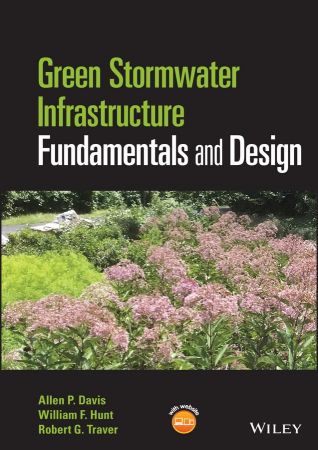
English | 2022 | ISBN: 1118590198 | 508 pages | True PDF EPUB | 268.57 MB
Green Stormwater Infrastructure Fundamentals and Design Discover novel stormwater control measures to make for a greener tomorrow!
The protection of our aquatic resources is growing in importance as the effects of climate change and continued urbanization are felt throughout the world. While most rain that falls onto vegetated spaces infiltrates the soil, rain that falls onto impervious surfaces will not, increasing downstream flooding and erosion and causing impaired water quality. Impervious surfaces such as road infrastructure, rooftops, and parking areas all increase runoff and mobilize many pollutants that have deposited on these surfaces that are then carried into our waterways. Proper management of this stormwater through green infrastructure is essential to address these challenges and reduce the environmental and ecological impacts brought about by this runoff.
This book brings into focus resilient stormwater control measures (SCMs) for the reduction of stormwater flows and associated pollutants that can detrimentally impact our local environmental and ecological systems. These interventions are green infrastructure based, utilizing natural hydrologic and environmental features using soil and vegetation to manage stormwater. These technologies include water harvesting, bioretention and bioinfiltration, vegetated swales and filter strips, permeable pavements, sand filters, green roofs, and stormwater wetlands, among others. The basic science and engineering of these technologies is discussed, including performance information and best maintenance practices.
Green Stormwater Infrastructure readers will also find:
Research-informed resilient SCM design fundamentalsDiagrams developed by the authors to enhance understandingCase studies to illustrate the points elucidated in the bookEnd-of-chapter problems with a separate solutions manual
Green Stormwater Infrastructure is an ideal resource for environmental, civil, and biological engineers and environmental scientists in the consulting field. Landscape architects, managers and engineers of watershed districts, and members of federal, state, and local governmental agencies-especially those in the departments of environmental protection and transportation-will find many uses for this guidebook. It will also be of interest to professors, upper-level undergraduates and graduate students in environmental, civil, and biological engineering programs.
Code:
NitroFlare
https://nitro.download/view/53992AD99779C2C/qrglb.G.S.I.F.a.D.rar
Rapidgator
https://rapidgator.net/file/e664b03877e2db41a8c858b2404ad648/qrglb.G.S.I.F.a.D.rar.html
Uploadgig
https://uploadgig.com/file/download/91d94575175a775A/qrglb.G.S.I.F.a.D.rar